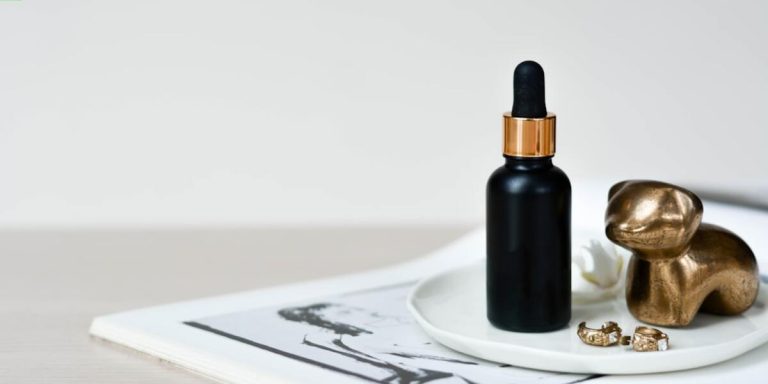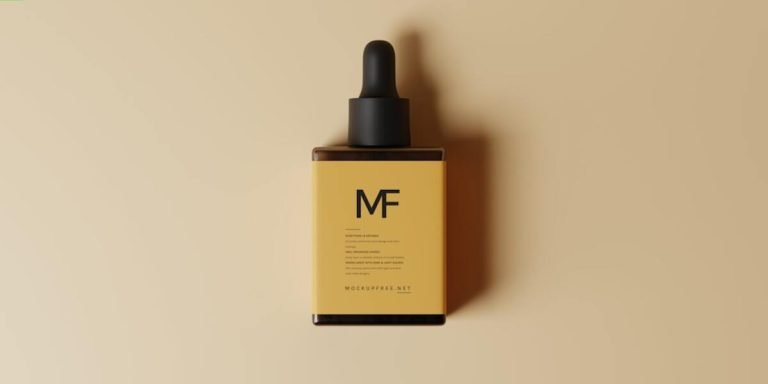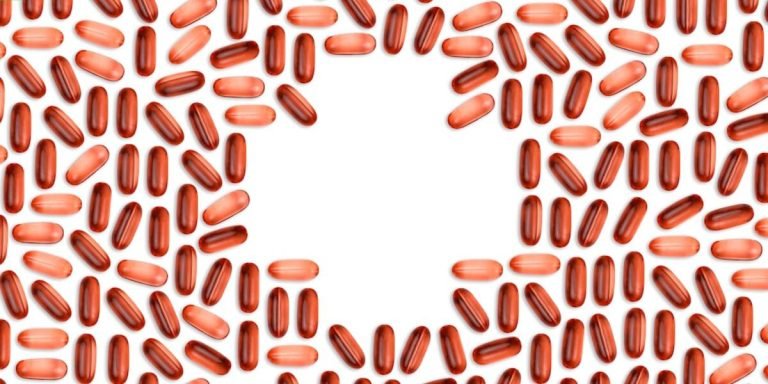What Vitamins Stop Facial Hair Growth: A Comprehensive Guide
Know which vitamins hinder facial hair growth if you seek to control its presence. Consider the following list of vitamins that influence the rate of unwanted facial hair:
- Vitamin A
- Vitamin B6
- Vitamin C
- Vitamin E
Incorporating these into your diet or supplement routine can aid in attaining smoother skin.
This comprehensive guide explores the vital substances that can alter facial hair growth patterns. We examine each vitamin’s role in bodily functions and their influence on hair production processes. Remember: knowing these aspects empowers you to control unwanted hirsutism.
Did you know?
Despite the common perception, there’s no specific vitamin that can stop facial hair growth entirely. However, certain vitamins like Biotin (B7) and Vitamin E may affect the thickness and health of your existing facial hair when consumed in appropriate quantities.
Understanding the Impact of Vitamins on Facial Hair Growth
Several factors can impact facial hair growth, and nutrients are one of the most crucial. Specific vitamins regulate the progression and density of facial hair. This is great news for those desiring sturdy whiskers or a fuller beard but can be an issue for individuals looking to minimize facial hair growth.
Vitamins A, B, C, E, and D are known for stimulating rapid cell reproduction and faster hair growth on all body parts including the face. These micronutrients invigorate skin cells by increasing blood flow, which speeds up cell multiplication and follicular development. Consequently, you experience an increased rate of hair growth.
No change is required.
The Role of Hormones and Nutrients in Hair Regulation
Hair growth is a complex process that requires the synergy of various factors, with hormones and nutrients playing an integral role. When e we talk about facial hair growth, it’s essential to understand how vitamins can both stimulate or stop its development.
The hormone testosterone plays a prominent job in male pattern baldness and facial hair growth. An increase in this hormone often correlates to more extended and dense beard growth but may also lead to premature balding on the scalp top.
Just like hormones, certain vitamins do command our body’s ability for adequate hair regulation. Vitamin A serves as one such instance which assists cell reproduction necessary for appealing skin texture including healthy follicles – hence potentially stimulating further sprouting of beards.
Conversely though, some people prefer inhibiting their rampant facial hair from developing excessively long too quickly – something achievable by controlling intake levels of specific vitamins known for fostering restrained facial-wild-hair-growth scenario; they include Vitamin B6 and Zinc.
Debunking Myths: What Science Says About Suppressing Facial Hair
In the contemporary sphere of nutrition and health, a topic that frequently surfaces is the effect vitamins have on hair growth. Often, many people are faced with undesirable facial hair problems and seek various solutions to inhibit such growth.
A highly circulated myth is that certain vitamins can halt facial hair development—however, science paints a different picture.
Numerous credible studies conducted over recent years find no definitive proof that any specific vitamin outright stops or suppresses facial hair growth. However, these studies clarify that our body needs a careful balance of nutrients for optimal functioning, which includes maintaining hormonal levels. These hormones may indirectly influence different types of bodily hair growth, not directly as often misconstrued.
Vitamin A plays a key role in enhancing vision and contributes to cell reproduction in human skin, including the follicles that house beard strands. This suggests an indirect correlation between vitamin A and whisker growth. However, the belief that it can completely stop unwanted facial hair growth is incorrect.
Essential Vitamins That Can Affect Facial Hair Development
Discussing facial hair growth requires understanding vitamins’ role. The body needs certain nutrients for its functions and processes, such as hair development. Some vitamins significantly affect these physiological mechanisms, increasing or decreasing facial hair growth.
Vitamin A significantly impacts hair health by:
- Aiding in the production of sebum, an oil that our skin’s glands secrete
- Ensuring optimal health for existing hair
- Encouraging the growth of new hair
However, excessive intake of vitamin A may lead to accelerated unwanted facial hair growth, especially in women with hormonal imbalances such as Polycystic Ovary Syndrome (PCOS).
B Vitamins influence genetic traits related to bodily features, such as facial hair formation, in both men and women. Biotin (Vitamin B7), often recommended for healthy hair, contributes to more pronounced beards and mustaches. Folic Acid, another B Vitamin, regulates hormone levels in your system and prevents unwanted facial hair growth in women.
Vitamin Inhibitors: Which Ones Slow Down Follicle Activity?
Vitamin inhibitors – those that slow down follicle activity, may be what you’re looking for if your aim is to harness the growth of facial hair. In this light, understanding which vitamins or lack thereof impacts beard growth can lead to focused dietary changes and targeted supplement use.
Firstly, Biotin (also known as vitamin H) plays a crucial role in cell proliferation when dealing with hair development. However, an over-supply can speed up the process faster than usual leading to unwanted excessive facial hair growth.
Ironically, while commonly associated with enhancing skin health, Vitamin E could act as the devil’s advocate when attempting to curb blooming whiskers. High intake of this potent antioxidant may accelerate normal hair growth on the face by increasing blood circulation, which also benefits scalp hair.
Interestingly, zinc doesn’t usually act as an inhibitor; however, low levels can bottleneck new hair growth at the surface. This trace mineral works synergistically with various enzymes and promotes healthy cellular reproduction and tissue regeneration. Thus, it indirectly affects the rate at which hair turns into fully developed bristles.
Balancing Intake: Optimal Nutrition for Minimizing Unwanted Hair
Balancing your intake of certain vitamins and nutrients can play a crucial role in minimizing unwanted hair growth. Contrary to the belief that all vitamins boost hair health, some could actually help control excessive facial hair.
First on our list, Vitamin B6 promotes overall skin health and effectively lowers high levels of testosterone, which links to increased facial hair growth. Consuming protein-rich foods like poultry, fish, or bananas will ensure you get enough B6 for a well-regulated hormonal balance.
Vitamin E boasts robust antioxidant properties that aid in cell repair and bolster immune system function. A lesser-known fact about this vitamin is its potential to slow down excessive facial hair growth when applied topically as oil or consumed orally from food sources like nuts.
Zinc should be included too! It influences multiple hormones involved with body and facial hair development; hence maintaining optimum zinc levels by consuming legumes and seeds might act as a deterrent for unwanted hirsutism.
To prevent new beard or mustache hairs, particularly in women, take the following steps:
- Directly address factors associated with hair appearance.
- Maintain overall health with a balanced diet.
- Manage Polycystic Ovary Syndrome (PCOS) to control hair growth on the cheeks, chin, and lip area.
Dietary Adjustments to Discourage Excessive Facial Hair Growth
Making dietary adjustments is an effective way to manage excessive facial hair growth. Focusing on certain vitamins and minerals that naturally suppress hair production can yield noticeable results over time, especially when combined with other targeted strategies for controlling unwanted hair.
Consider including Vitamin B6 in your diet to naturally deter excessive facial hair. This vitamin lessens the body’s sensitivity to testosterone, which can trigger excess hair growth. Include Vitamin B6-rich foods like bananas, spinach, and salmon to potentially reduce this issue.
Eating more biotin-rich foods like eggs and nuts may help discourage the growth of unwanted facial hair. Biotin, while mainly supporting healthy skin and nails, can also adversely affect general body and facial hair production when consumed in excess. Its water-soluble nature interferes with protein metabolism in the follicles, slightly hindering their development cycle.
Lastly, and importantly, zinc is an essential mineral that regulates hormone levels and may deter acne growth spurts across your face by counterbalancing high testosterone levels commonly linked to such breakouts. Including zinc as a fortifying part of your diet could potentially change the game!
Foods to Favor: Natural Sources of Beneficial Vitamins
To moderate excessive facial hair growth, include key vitamins in your diet from natural sources.
1. Vitamin A: This vitamin is essential for fast and healthy hair growth as its deficiency often results in sluggish regrowth or even thinning hairs. Consuming food like carrots, liver, sweet potatoes and kale will help maintain the balance.
2. B-Vitamins: Richly found in whole grains, almonds, meat and fish; these contribute towards healthier skin cells which directly impact facial hair thickness and strength.
3. Vitamin C: An antioxidant that aids iron absorption – imperative for hair health – can be naturally sourced from citrus fruits like oranges & lemons along with bell peppers.
Research links Vitamin D, the ‘sunshine’ vitamin, with positive effects on new cell generation. It helps produce body hair follicles and minimizes unwanted facial hair. Excellent sources of Vitamin D include:
- Fish such as mackerel or salmon
- Fortified dairy products
- Exposure to sunlight
5.Here come essential minerals such as zinc (found in lentils) magnesium (in spinach) promoting hormonal balance thus helping regulate unsought-for-face-hair-growth by stabilizing testosterone levels when ingested regularly.
6.Complementingly Omega-3 fatty acids abundantly present within flaxseeds counteract inflammation potentially affecting scalp health adding another dietary check against overgrowth of beard/mustache where undesired .
Strategic Diet Planning: Aligning Your Meals with Your Hair Goals
Strategic diet planning can play a pivotal role in managing unwanted facial hair growth. By integrating certain vitamins into your meals, you may be able to discourage excessive hair production and aligning your culinary world with your aesthetic goals become possible.
To start off, Vitamin A is an essential player that inhibits overactive hair follicle cells which lead to unexpected sprouting of hairs on the face. It’s abundant in foods like carrots, sweet potatoes, kale and spinach – all easily integratable options for any meal of the day.
Biotin or vitamin B7 also joins this team as it governs cell proliferation rates including those related to facial hairs. Rich sources include eggs, almonds and avocados; making breakfast time a key moment for incorporating biotin-rich edibles into one’s routine.
Vitamin E stands tall as another nutrient that helps counteract unnecessary facial hair growth by controlling hormonal imbalances often responsible for such changes. Foods rich in Vitamin E like sunflower seeds or spinach could make great additions to salads or quick snacks between meals.
Include chia seeds, flaxseeds, walnuts, trout, and salmon in your daily diet to help omega-3 fatty acids work synergistically with vitamins and regulate hormones that influence hair patterns.
Conclusion
In summary, you must understand the broad and varied roles vitamins play in our bodies. Some may even help slow down unruly facial hair growth. If you’re struggling with unwanted whiskers, consider a blend of Vitamins E, C, and B6 to achieve a smoother look without harsh treatments or constant shaving.
Explore more on our website about hair health – we offer a variety of insightful articles that could transform your approach towards holistic well-being. Click another page and discover how much you can still learn from us today!







